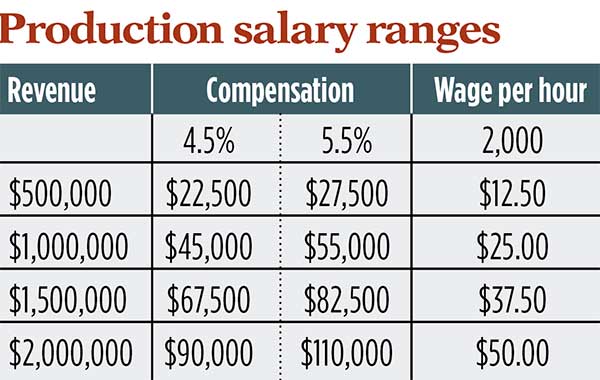The business world is full of catchphrases, many of which I think are not fully understood. I was discussing scaling when I typed “what does scaling a business mean” into a search engine. I got this:
“Scaling a business means setting the stage to enable growth in your company. It means having the ability to grow without being hampered. It requires funding and the right systems, staff and customers.”
OK, what does this mean in practical terms for a landscape contractor? Per the definition, three elements must “grow up” to scale a business. I’ll discuss two of these factors here.

Customers. Without a reputation for quality and delivery, you’ll never be able to scale your business. Assuming you have this reputation, you must be able to replicate your customer service experience at much larger revenue volumes.
This task is not easy because your client experience is likely based on one or two people, one of those being you. For the company to “grow up,” you need to grow up and out of one of your roles. Scaling requires a full-time leader in the front of the house (sales and service) and one in the back of the house (production and operations). The front-of-the-house leader must be the customer experience czar. That‘s usually the owner. He or she must stop selling and instead recruit and train designers, account managers and salespeople and tie them all together with a system that captures every piece of information about every customer.
Staff. Without managers, you cannot scale. Finding these people is not easy.
Often, you want them to come from within, but some of them are incapable of “growing up.” They continue to think like hourly production workers instead of salaried management professionals. This situation becomes obvious when some crew leaders make more than the manager during some weeks of the production season, and the manager feels underpaid. Scaling requires a separation between blue-collar and white-collar thinking.
I will state again what I’ve said many times before: The most important people in a contracting company are the top crew leaders. It’s management’s job to care for these people. As go your top crew leaders, so go your profits and customer experience. Will they make more than a manager some weeks of the year? Yes, maybe, but why would you care as a manager? That’s blue-collar thinking. Here’s what I told a new manager when he was struggling with this concept.
“Your job is to teach, coddle, spank, drive and, above all, keep your best people. Let those guys make all the money they want as long as they are making margins and delivering quality because the day you lose those people, your life will become a miserable babysitting job, and then you’ll wish you were just a crew leader again. The problem with that is you will be older and less able to handle the physical demands of the job. You have an opportunity right now to make more money over the long term and to save your health.
The money is not guaranteed; it depends on your willingness and ability to think like a manager. The math is simple: The more crews and the more money you can manage, the more you’ll make. Of course, as a crew leader, you’ll know exactly what you’ll make, but even in a great year, that’s only ‘X’ dollars per hour times ‘Y’ hours, not to mention the wear and tear on your body when you’re 40 years old.”
The math is pretty simple, and I’ve outlined it before in this column. Management (production) salaries should be around 5 percent of revenue under management. This yields the following comparison table.
Note: These are not exact numbers for every position in your company, and they include base plus bonuses/commissions. They are meant to demonstrate a range only.
So, I showed the manager referenced above this table, and I said: “First, I hope you can see that if you manage more crews, you will make more than any crew leader. Second, I don’t care how good you are as a crew leader — nobody is going to pay you $50 per hour.”


